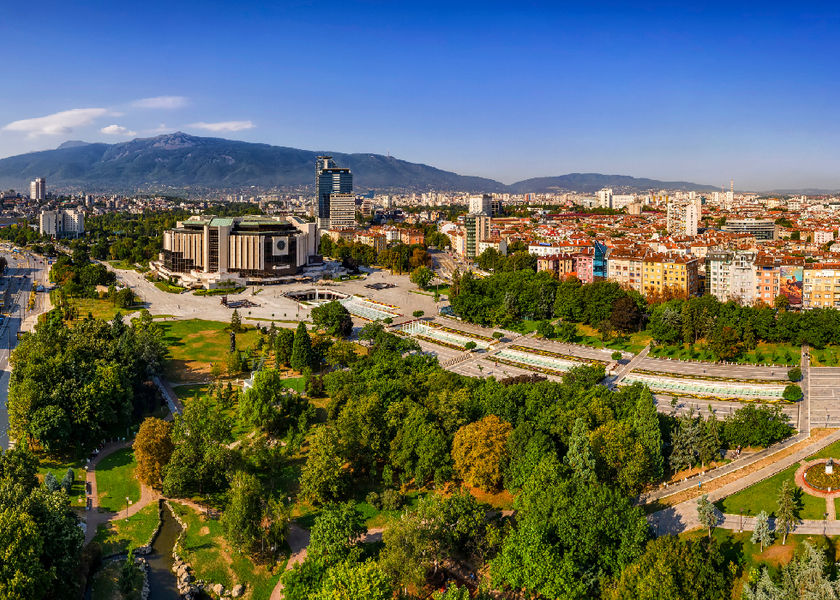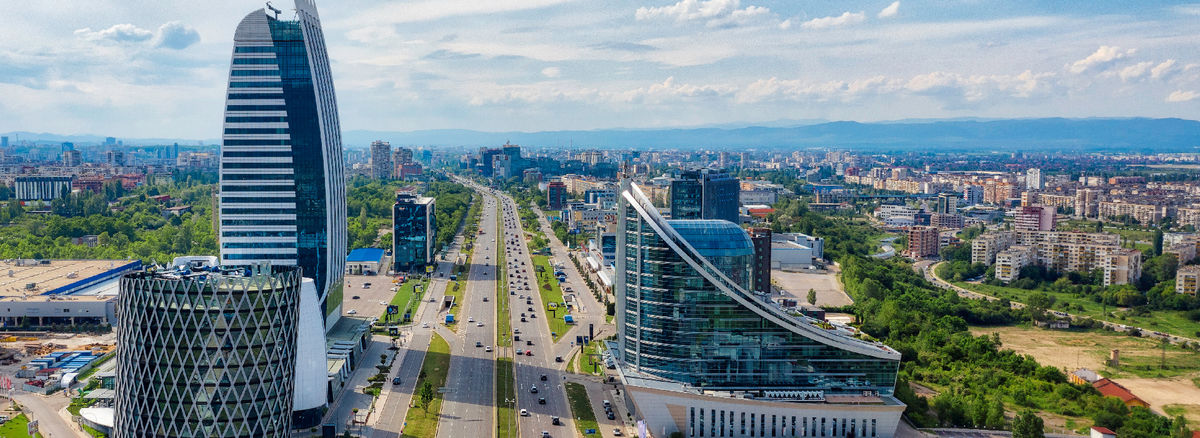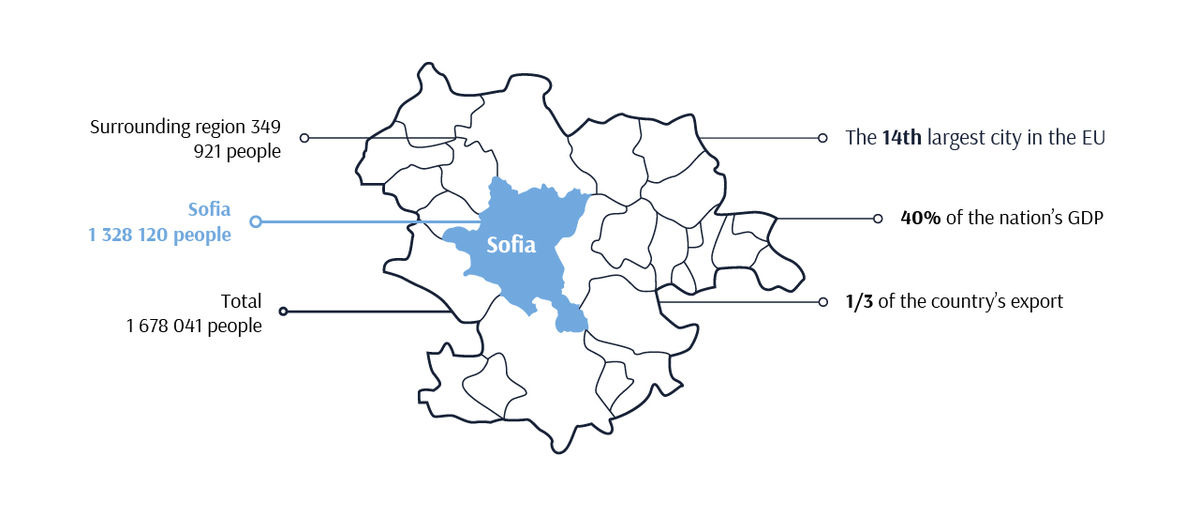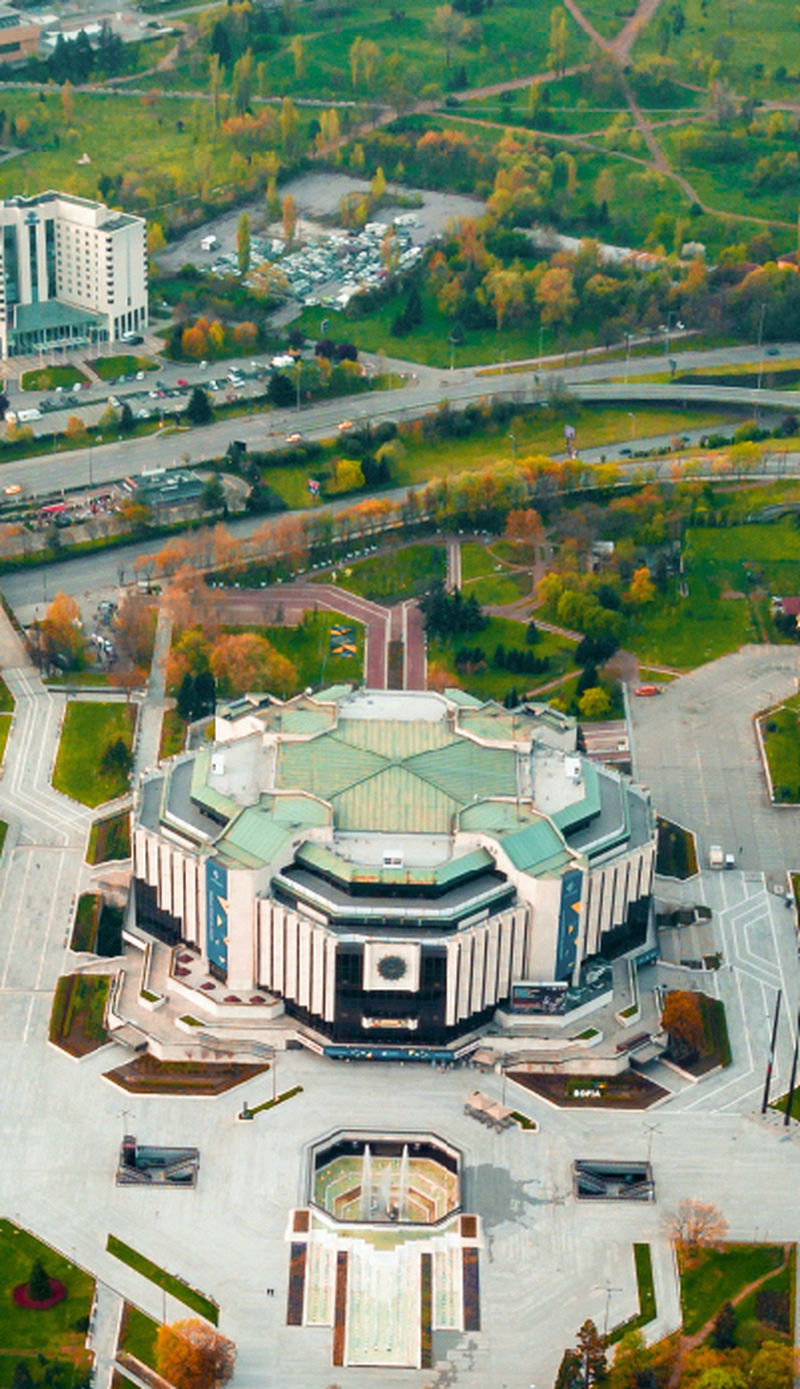Sofia “Smart. Innovative. Dynamic.”

Sofia is the capital and most populous city of Bulgaria. Sofia’s population exceeds 1.3 million, 1.6 million within the surrounding region, over an area of 492 km², making it the 14th largest city in the European Union. Sofia is a city with a very eclectic style.
Roman baths rub shoulders with Stalinist Gothic buildings. Despite the cityscape not being uniform the city has its own peculiar charm. Sofia is home to many renowned dance and theatre companies. Going to the movies is a popular thing to do in the city. Sofia even has cinemas that only show independent European movies. The National Art Gallery and the National History Museum showcase the various Bulgarian artists and the lengthy history of the country. Sofia has many imposant buildings, but the one that attracts the most visitors is without a doubt the Alexander Nevsky Cathedral. It has become one of the symbols of Bulgaria.

Economy
The city’s economy is growing at a rapid pace. Sofia accounts for 40% of the nation’s GDP and 1/3 of the country’s export. Sixteen percent of the city’s exports are produced by the growing ICT sector in the city.
Sofia has one of the most vibrant start-up and entrepreneurial ecosystems in Central and Eastern Europe. The capital available to local startups has played an instrumental role in positioning Sofia on the entrepreneurial map of Europe. Sofia acts as a magnet for talent. Twenty-three of Bulgaria’s 51 universities are located in Sofia, with over 100 000 students.

Future Goals and Interests
Availability of financial resources and the strong traditions in education are the city’s main strengths that support the development of a favourable environment for technologies and innovation. One of the main driving forces behind the achievements in these areas are the educated and enterprising people of Sofia. The future of Sofia is to develop as a green and innovative city and to transform into a digital capital of new markets. Therefore, Sofia aims to position itself as:
- European technology leader, open to citizens and the business
- Future-proof city, ready to cope with the challenges of tomorrow
- Innovative hub facilitating the R&D potential of the technology sector
- Active market creator for the locally developed products and solutions
- Part of an international network of cities – digital leaders
- Recognisable location for testing and implementation of smart urban solutions.
In 2020, Sofia Municipality launched a Digitalisation, Innovation and Economic Development Department under the brand InnovativeSofia which consolidates and guides all of the city’s digital and smart city projects and will continue to support high-tech and R&D investors in Sofia.
In 2020, Sofia City Council unanimously adopted the Digital Transformation Strategy of Sofia. The Strategy was created under the Digital Cities Challenge project with the advisory support of experts from and according to the methodology of the European Commission. It was developed with the coordination of the InnovativeSofia team and the active participation of over 100 stakeholders from the local ecosystem.

As per the Strategy, Sofia plans to introduce a series of measures to strengthen and develop the ICT business ecosystem and improve the quality of life of citizens through the integration of new technologies and processes that create prerequisites for: (a) development of innovative solutions for digital transformation which save time for citizens and businesses; (b) identification or creation of new markets for digital products and services at local, national and international levels, and facilitation of access to those markets; and (c) transformation of Sofia into an innovative ecosystem in which new digital solutions are implemented.
The new InnovativeSofia unit is actively working in three priority areas: e-government, data and open data and smart city.
Sofia is part of a number of partnership networks, among which Eurocities, Metropolis, Covenant of Mayors for Climate and Energy, Association of Cities and Regions for sustainable Resource Management (ACR+) and is participating in numerous digital and innovative projects, such as Digital Transition Partnership, H2020 PolicyCloud and INNOAR under Urban Innovative Actions.
Your cookie preferences
We use cookies and similar methods to recognize visitors and remember their preferences. To learn more about these methods, including how to disable them, view our cookie policy.

